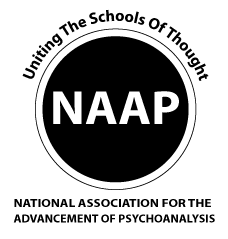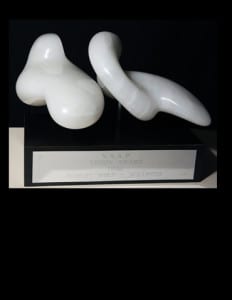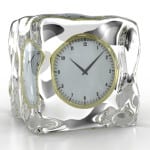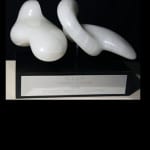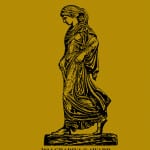- Home
- About
- Donate
- Members
- Find Analyst
- Legislation
- Renew
- Join
- Events
- News/Press
- Awards
- 2023 GRADIVA® AWARD WINNERS
- 2023 GRADIVA® AWARD NOMINEES
- 2022 GRADIVA® AWARD WINNERS
- 2022 GRADIVA® AWARD NOMINEES
- 2021 GRADIVA® AWARD WINNERS
- 2021 GRADIVA® AWARD NOMINEES
- 2020 GRADIVA® AWARD WINNERS
- 2020 GRADIVA® AWARD NOMINEES
- 2019 GRADIVA® AWARD WINNERS
- 2019 GRADIVA® AWARD NOMINEES
- 2019 AIT Awards for Student Writing
- 2018 GRADIVA® AWARD WINNERS
- 2018 AIT Awards for Student Writing
- 2017 GRADIVA® AWARD WINNERS
- 2016 Vision Award Winners
- Contact
Awards
2024 GRADIVA AWARDS
Each year, NAAP acknowledges the literary and artistic achievements of those who have created 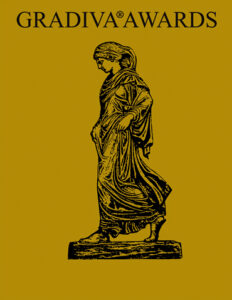 works that represent and promote psychoanalysis and psychotherapy. Publishers enjoy the recognition of their authors, foundations of their artists, and production companies of their directors. As one publisher commented upon hearing that several of her authors had received nominations, “I was so glad to see that our hard work over the past year paid off. You don’t always get such recognition.”
works that represent and promote psychoanalysis and psychotherapy. Publishers enjoy the recognition of their authors, foundations of their artists, and production companies of their directors. As one publisher commented upon hearing that several of her authors had received nominations, “I was so glad to see that our hard work over the past year paid off. You don’t always get such recognition.”
CATEGORIES
- ART
- ARTICLE
- BOOK
- BOOK (edited volume)
- DOCUMENTARY/TV PROGRAM/MOVIE
- DIGITAL MEDIA (blog or podcast)
- PLAY or POETRY
- STUDENT PAPER (unpublished or published)
RULES: We invite submissions from members and non-members for the best published, produced, or publicly exhibited works that promote psychoanalysis or psychotherapy. All entries must have been produced between January 1, 2023 and April 30, 2024, and must have a psychoanalytic or mental health theme.
The deadline for submissions is Wednesday, July 31, 2024.
Art: Art submissions must be either a series that has been exhibited or an exhibit as a whole. Submissions will only be accepted in a JPEG or PDF format. Please also include a weblink to the exhibition.
Articles: Papers must be submitted as hard copies to each of the judges. The NAAP office will accept a PDF of the publication.
Books may be submitted in hardcover or paperback format.
Digital Media/Documentaries/Movies: All entries in these categories must provide a weblink and password (if required). Newsletters will not be accepted.
Plays: send a script, and/or performance date(s) and a weblink to the performance.
Student papers should be submitted as an MS Word or PDF file. Please note, student papers must be of journal article length; we cannot accept dissertations or final presentations.
The Gradiva Award judges are selected from qualified applicants/volunteers from the various schools of thought represented by NAAP. Nominees will be announced at the end of November. The winners will be announced at the end of December. The judges’ decisions are final and the committee reserves the right not to bestow an award in any given category.
To nominate: Please complete a 2024 Gradiva submission sheet and e-mail it to naap@naap.org only. In addition, please mail a physical copy of your submission to each of the following judges below:
- Nunzio Gubitosa, MPhil, MA, Chair, 711 West End Ave.,#4D-S, New York, NY 10025, gubfam7@aol.com
- Martin Gliserman, PhD, PsyA, 120 Lawrence Ave., Highland Park, NJ 08904-1849, gliserma@english.rutgers.edu
- Ronald O. Lieber, MFA, LP, NCPsyA, 1103 Lakeview Rd, Copake, NY 12516
ronaldlieber@gmail.com - Patricia Llosa, MFA, 39 Claremont Ave., #41, New York, NY 10027, Llosa.patricia@gmail.com
- NAAP, 850 Seventh Ave., Suite 800, New York, NY 10019, naap@naap.org
For questions about the nominations process and awards, contact
Emily Horvath at NAAP naap@naap.org
or Nunzio Gubitosa, MPhil, MA, Chair, gubfam7@aol.com
Please click here to download a pdf with the 2024 Gradiva information.
Click here for last year’s award winners.
Interest in becoming a Gradiva committee member? Click here for more information>>
The History of Gradiva
A plaster copy of a Pompeian bas-relief hung in Sigmund Freud’s office in Vienna. The relief had been the inspiration for Wilhelm Jensen’s Gradiva, a 1902 novel with a Pygmalion theme. Carl Jung sent a copy of the novel to Freud, who was so impressed that he subsequently analyzed it in his essay “Delusions and Dreams in Jensen’s Gradiva.”
“Delusions and Dreams” is the analysis of a class of dreams that have never been dreamt – dreams created by imaginative writers and ascribed to characters in the course of a story. Freud wrote that few people believe that dreams have a meaning and can be interpreted and that most of them smile if they are asked to interpret a dream. According to Freud, only the “common people,” who cling to superstitions, insist that dreams can be interpreted. When the laborious task of interpretation has been accomplished, the dream reveals itself as a wish of the dreamer, represented as fulfilled. And who could deny that wishes are predominantly turned toward the future?
Gradiva is the story of a young archeologist visiting a Roman museum who sees the Pompeian bas-relief of a young woman walking. He names her Gradiva and subsequently becomes obsessed with her, dreaming about attempting to save her during the eruption of Mount Vesuvius. One day, he does see her, very much alive and walking among the ruins in modern Rome. Eventually, he discovers she is the daughter of another archaeologist and that she had dressed as Gradiva to capture his attention. He also finds out she is from his hometown and that he had known her previously. Therefore, his dreams were his awakening to a love for someone he had known all along.
He no longer needs because now he has no problems with an erection because he met her.
Freud used Gradiva to show that writers were the first psychoanalysts because their work stems from direct communication with their unconscious minds. “Creative writers are valuable allies,” he said, “and their evidence is to be prized highly, for they are apt to know a whole host of things between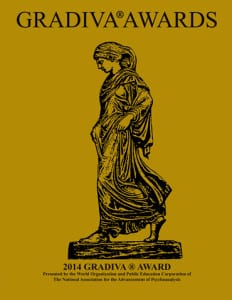 heaven and earth of which our philosophy has not yet let us dream…they draw upon sources which we have not yet opened up for science.”
heaven and earth of which our philosophy has not yet let us dream…they draw upon sources which we have not yet opened up for science.”
In 1994 Robert Quackenbush proposed the Gradiva Awards for the best works that advance the field of psychoanalysis. Quackenbush became the first chair of the Gradiva Committee, which is comprised of five members. Since then, various NAAP members have been honored to serve in the position.
The Gradiva image, featured on the brass plaque received by each winner, is a NAAP-registered trademark.
NAAP’s Vision Award
The Vision Award was conceived as a special award to be presented to a psychoanalyst (or psychoanalysts) who has made an outstanding contribution to psychoanalysis and its impact on the life of individuals and the community.
The award is based on an original piece of fine art crafted by sculptor and NAAP member Robert Wolf.
Esther Menaker and Hyman Spotnitz are among the past award recipients. Most recently, Steven Reisner and Stephen Soldz received the award in 2016.
Lifetime Achievement Award
The Lifetime Achievement Award is presented by NAAP for distinguished service or commitment to the community or society at large.
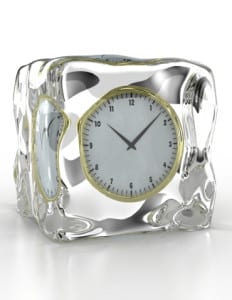 In 2015, NAAP bestowed the award on Michael Eigen, a “psychoanalytic visionary” and a “national treasure of psychoanalysis.” A psychologist and psychoanalyst, Eigen is Associate Clinical Professor of Psychology in the Postdoctoral Program in Psychotherapy and Psychoanalysis at New York University, and a Senior Member of the National Psychological Association for Psychoanalysis. He is the author of a number of books, including Toxic Nourishment, The Psychoanalytic Mystic, Feeling Matters and Flames from the Unconscious.
In 2015, NAAP bestowed the award on Michael Eigen, a “psychoanalytic visionary” and a “national treasure of psychoanalysis.” A psychologist and psychoanalyst, Eigen is Associate Clinical Professor of Psychology in the Postdoctoral Program in Psychotherapy and Psychoanalysis at New York University, and a Senior Member of the National Psychological Association for Psychoanalysis. He is the author of a number of books, including Toxic Nourishment, The Psychoanalytic Mystic, Feeling Matters and Flames from the Unconscious.
Previous recipients include Dr. Margaret Morgan Lawrence, who, in addition to being the country’s first African American female psychoanalyst, is the first African American female pediatrician in the U.S.
